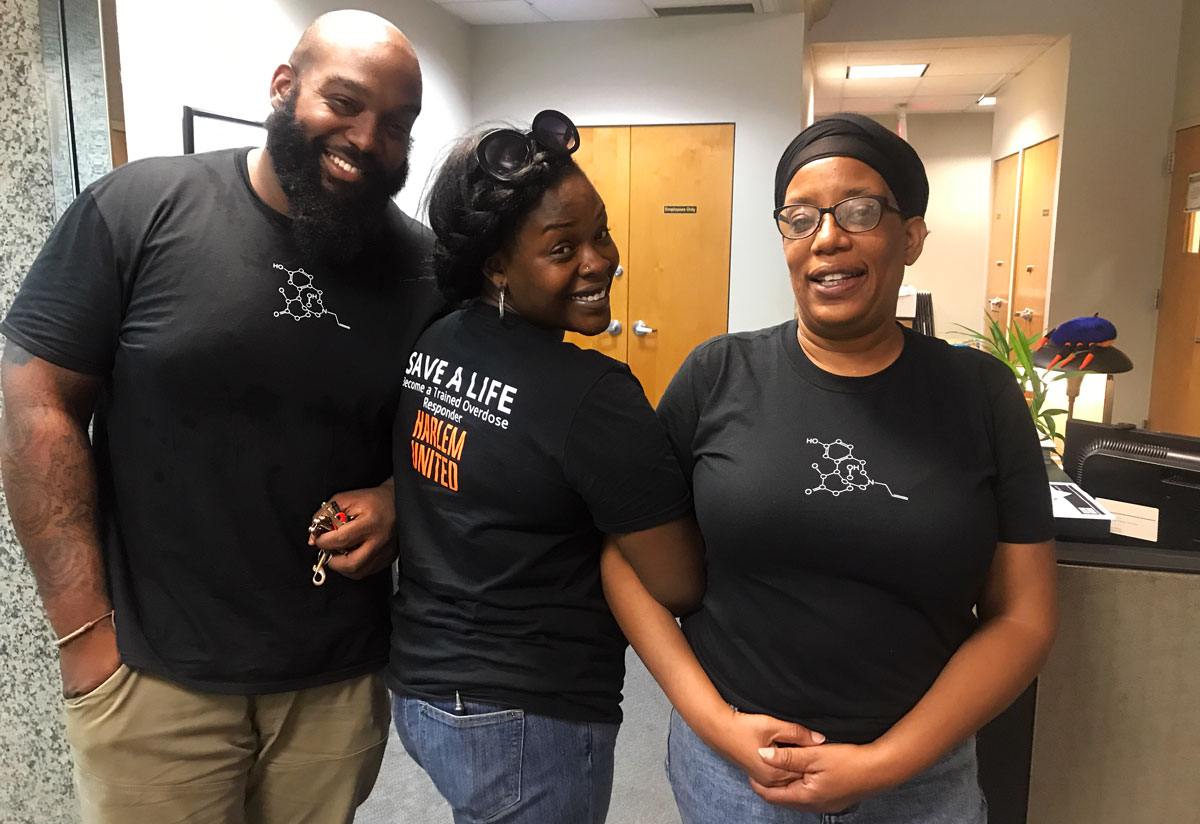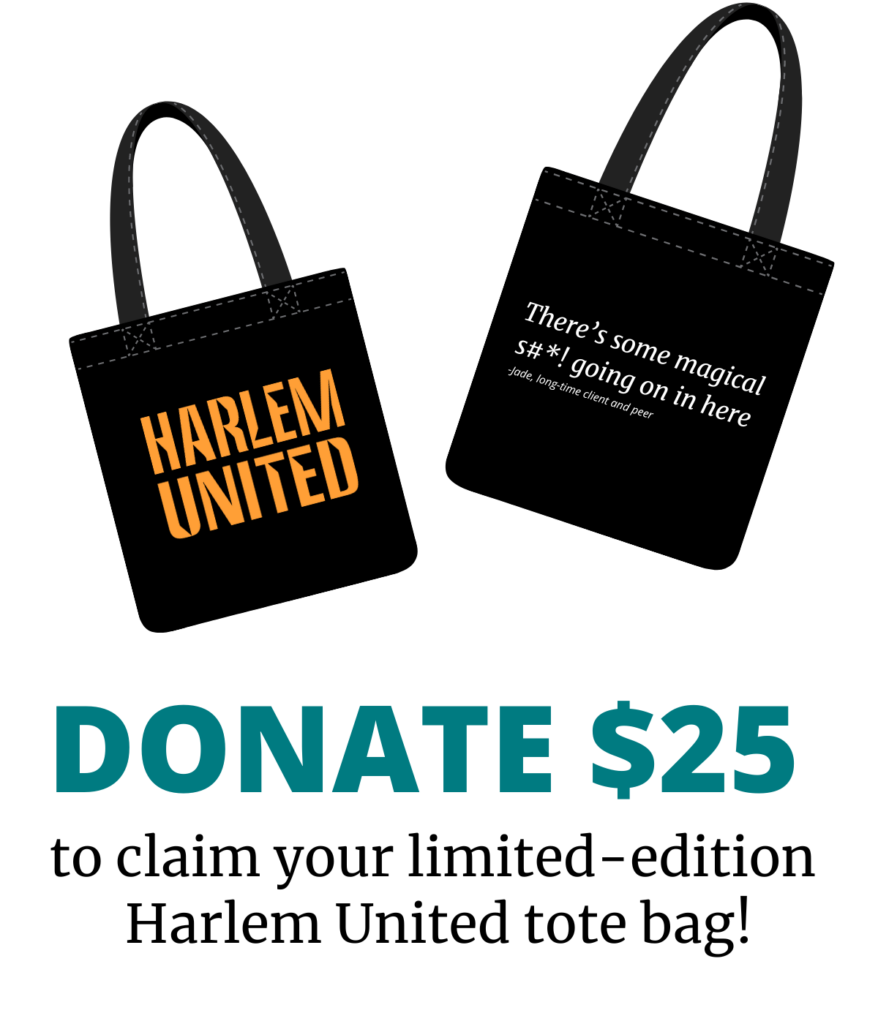The rate of opioid overdose in the United States has tripled since 2000. To make matters more complicated, it’s not always clear who is at risk for an overdose. The image you have in your mind of who a “drug user” is could be based on an inaccurate stereotype.
International Overdose Awareness Day is this Thursday and we want to make sure that you have all the information you need to keep yourself and your friends and family safe — and to help you understand who may be affected and what you can do to help.
[message type=”info”]
If you live in NYC, we offer training on overdose prevention and can give you Naloxone kits — a life-saving medicine that stops and reverses an opioid overdose. Get the details.
[/message]
What can cause an overdose?
When you think of an overdose, a dramatic image of someone injecting heroin may come to mind but there are many types of opioids, all of which can cause an overdose death, and many that are legally available.
Examples of opioids include (but are not limited to):
[columns]
[column size=”third” last=”no”]
- Heroin
- Fentanyl
- Tylenol #3
[/column]
[column size=”third” last=”no”]
- Vicodin
- OxyContin
- Oxycodone
[/column]
[column size=”third” last=”yes”]
- Morphine
- Codeine
- Percocet
[/column]
[/columns]
Overdose Facts
- 8 million Americans have used heroin or have taken prescription opioids like Percocet or OxyContin at some point in their lives
- 2 million people are addicted to opioid medications or heroin, but only 10% get receive medical treatment for their addiction
- Most people get their prescription opioids from a relative or friend rather than directly from a doctor, but prescription-opioid users are at the highest risk of overdose and death.
- Street heroin is often laced with fentanyl, another powerful opioid that is 100 times more powerful than morphine. Many unsuspecting heroin users are purchasing this new killer heroin, dramatically increasing their risk of overdose and death
- Opioid substances can be dangerous and cause overdose and death. Mixing alcohol, or other drugs can increase risk of overdose and death
Risks of using opioid medications or street opioids
- Overdose and death
- Weakened immune system response to fight infections
- Digestion issues ranging from constipation to bowel rupture
- Bacterial blood infections, and skin infections due to injecting drugs
- Hepatitis B, Hepatitis C, and HIV infection
Signs of Overdose
- Extreme drowsiness and confusion
- Dizziness
- Loss of balance
- Seizures
- Small pupils
- Muscle stiffness
- Nausea and vomiting or vomiting of blood
- Slow shallow breathing
- Abdominal cramping and diarrhea
- Cool, clammy skin
Need Help with your opioid problem? Come See us at Harlem United
We know that there are lots of reasons why you may be using opioid drugs or medications. Maybe you have chronic pain, maybe life is really stressful and they make getting through the day seem a bit easier. Or maybe you don’t want to be using them anymore but at this point you’re just plain addicted.
Whatever your reason, we’re here to listen and to help—on your terms.
Our highly trained staff specializes in treating patients with opioid addiction. Our harm-reduction based approach takes your goals into consideration and may involve medication, counseling, and/or other supportive services to address all aspects of your addiction.
We can prescribe a variety of medications, include Suboxone, to prevent the impulsive cravings of addiction. Therapy can help a you to develop the necessary skills to meet your recovery goals.
We can also prescribe Naloxone, a method of treatment to prevent overdose. We can teach you how to administer Naloxone to a friend or family member who have signs of overdose.
If you’re interested in learning more about our services to help with your drug or medication use, email intake@harlemunited.org. If you’d like to receive training on how to prevent overdoses using Naloxone (and a free kit), email Isaac Hernandez at ihernandez@harlemunited.org. All communication is strictly confidential.
Other Helpful Tips:
- Learn to manage your pain. You may be taking prescription opioids for chronic pain but they’re often not very effective at alleviating that pain. Talk to your doctor about alternative ways to manage pain
- Find an activity or hobby that keeps you busy to take your mind off the pain, as focusing on your pain can often make it worse.
- Learn to concentrate on your breathing. Yoga and meditation are good for your muscles and your mind. This is great way to kick start your recovery.
- Get a good night’s sleep. It is most helpful to stick to a normal sleeping routine every night.
- Avoid smoking as it can worsen painful circulation problems.
About the authors: Alisha Liggett, MD is Harlem United’s Director of Pediatric and Family Care Services; Brian G. Murphy is Harlem United’s Senior Director of Marketing & Communications; Yazan Nagi is an Office Patient Assistant at Harlem United
[message type=”info”]
If you live in NYC, we are hosting a free, community training on overdose prevention on Wednesday August 30 and will be giving out Naloxone kits — a life-saving medicine that stops and reverses an opioid overdose. Get the details.
[/message]

